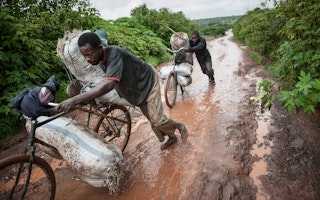Politically, Montenegro finds itself in a paradoxical situation. At one level it is the champion of European integration in the Western Balkans when it comes to progress in the EU accession negotiations, but it is also the only country in the region that has not experienced a change of government since the introduction of the multiparty system in 1990.
The same individuals, families, and political and business elites have been controlling the country’s politics and economy for more than 25 years. This situation is likely to continue after the recently held October 16 parliamentary elections where the ruling Democratic Party of Socialists managed once again to secure the most seats in parliament but fell short of securing an absolute majority.
Key conclusions in this report include: the October elections were marked by numerous irregularities and were held in problematic conditions; the Montenegrin government and European Commission need to focus more on reforms in the area of the rule of law; the EU accession process remains unclear and lacks transparency. The authors present recommendations to the European Commission, European Parliament, and the EU member states for moving forward.
Download
-
Montenegro: Elections Aftermath and the European Commission’s 2016 Country Progress Reports (503.95 Kb pdf file)
Download the complete 12-page report.
Read more
Resilience in Moldova
Q&A: Moldova’s Path to a European Future

Moldova has endured the Kremlin’s aggression because it has chosen to leave Russia's sphere of influence and supports Ukraine. The impact of the war on daily life—and why the nation is determined to join the EU.
Rethinking the EU
In an Age of Crisis, an Opportunity to Remake the EU

From climate change to rising authoritarianism, Europe is facing a range of crises that threaten the way we live. The EU must seize the opportunity to reshape how it works and rethink what role it plays in a changing world.
Corporate Responsibility
Q&A: Why (Some) Investors Want More Regulation

As the EU works on rules to protect worker rights and the planet from corporate harm, Open Society’s Jon Jacoby spoke to Anita Dorett, of the Investor Alliance for Human Rights, about how investors are pushing for change.
